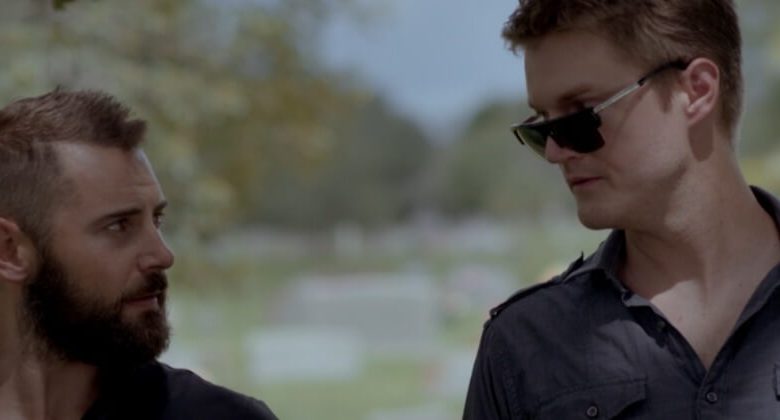
Get ready for the third wave of faith-based filmmaking.
For years Christians supported micro-indie films that spread the message of God but cut some cinematic corners.
Think “Facing the Giants” and “Fireproof.”
Once Hollywood realized the profits lurking in the genre it quietly mobilized. Suddenly, actors like Jennifer Garner and Greg Kinnear signed on for films affirming God’s glory.
“Generational Sins” marks a new, more challenging, approach to Christian storytelling. The film crashed The Hollywood Reporter for its less than Godly language, now branded with the PG:13 rating. That’s not why “Sins” marks a turning point.
The film’s ability to avoid choir preaching at nearly every turn is why it matters.
Hotheaded Drew (Daniel MacPherson) hates his mother’s dying wish. She wants him to travel with his brother Will (co-writer Dax Spanogle) to visit their estranged father.
Dad was a drunk who turned their young lives into a nightmare. Why would Mom demand a reunion, let alone a possible reconciliation? Drew begrudgingly does as told, turning “Sins” into a conventional road picture for a spell.
The brothers hardly get along themselves. Will is quick to mock their small-town roots. Drew’s temper is legendary, even if his stillness suggests a pain that can’t be treated.
Can this journey yield anything to bring them together?
Yes, “Generational Sins” doesn’t sound like a traditional Christian movie. The screenplay is salty, over and again. That profanity isn’t meant to shock. Nor does it burden the dialogue like some R-rated comedies desperate for a laugh.
Yes, we’re looking at you, “Baywatch.”
RELATED: How Faith-Based Movies Miss the Point
The main characters in “Generational Sins” aren’t saints. They drink, (clumsily) flirt with women and find themselves in a bar brawl mid-movie. We’re all sinners, as “Generational Sins” is quick to remind us.
The story’s biggest sin? While writer/director Spencer T. Folmar avoids some of the faith-based genre’s lesser tropes he trips over the romantic subplots. There’s a reason they exist, but their introduction, and occasionally their execution, is beneath the rest of the film.
None of that is MacPherson’s fault. He’s terrific as Drew, drawing us into the story in ways that trump previous Christian films. His fits of rage are as authentic as the story requires, but he excels in the quieter moments when he seethes over his past and present.
The film's ability to avoid choir preaching at nearly every turn is why it matters.Click To TweetSo when does God enter the frame? “Sins” shrewdly weaves faith into the narrative, keeping the moments rooted in the characters. In reality, more films should follow its lead, given how many Americans believe in a higher power.
Just as impressive is how Folmar pays tribute to Small Town USA. He doesn’t wave ol’ Stars and Stripes in front of the camera. He embeds the message in the screenplay and in the gentle dignity of the main players.
HiT or Miss: “Generational Sins” may genuinely unite agnostic and Christian audiences with a redemption story filled with authentic touches.

Facing The Giants actually was a major step up for Christian films, production-wise. I’d say God’s Not Dead is a better example of cutting corners….